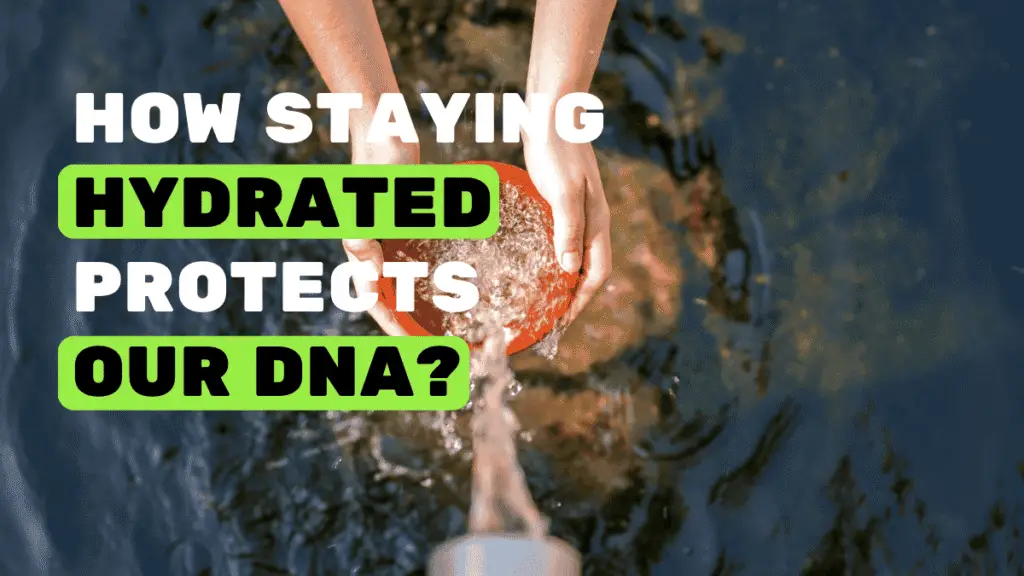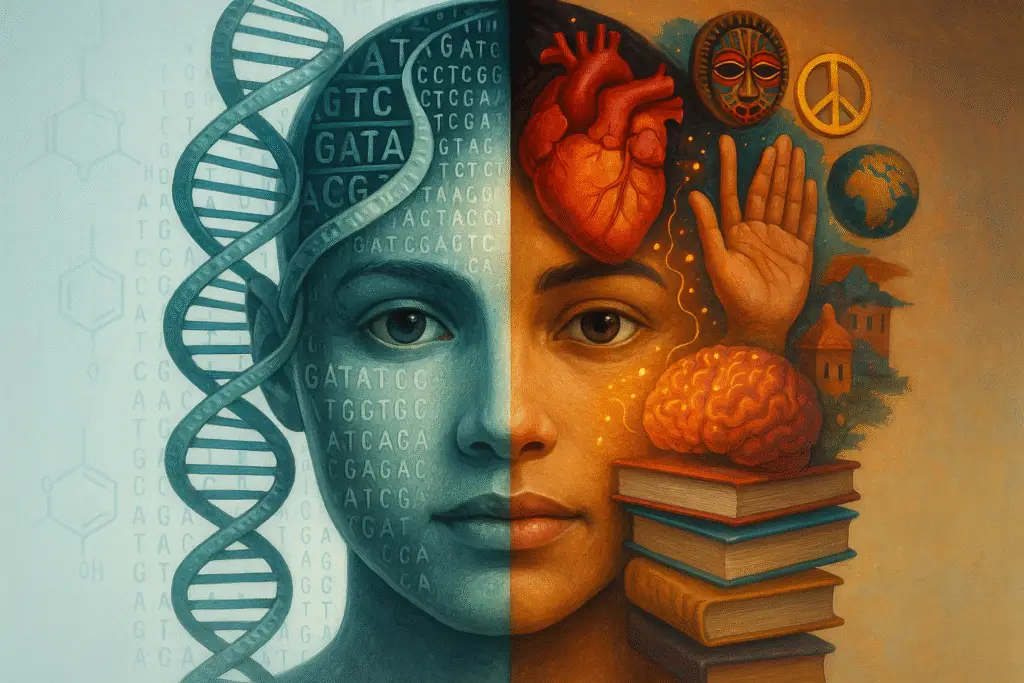When we think about having enough water intake, or staying hydrated, the things that come to mind are glowing skin, staying cool on a hot sunny day, or simply quenching our thirst.
We always link hydration to beauty and general health, but let me tell you that drinking enough water and staying hydrated is also good for our DNA. Yes, staying hydrated protects our DNA and improves our genetic health.
Our DNA is always under attack from stress, pollution, toxins, and even natural processes that occur in our bodies. Every sip we take isn’t just refreshing, from maintaining the balance of our cells, to flushing out toxins, to fighting oxidative stress, water supports our body’s ability to keep DNA healthy, stable and intact.
Not drinking enough water keeps us dehydrated. Without enough water, our cells struggle to repair themselves, which leaves the DNA more vulnerable to damage, and this can increase the risk of various diseases and even result in aging.
Let’s know how drinking enough water keeps our DNA protected.
Read more: Are Your Allergies Genetic?
Hydration and healthy DNA
You must be aware of the 8 glasses of water a day rule. But water needs can actually depend on age, lifestyle and climate. According to experts, men should aim for 3.7 litres and women for 2.7 litres of water per day. And this includes water from food and other drinks as well.
Water plays an important role inside our cells to maintain a stable environment for our DNA. It also supports the body’s antioxidant defences, which reduce oxidative stress (one of the main reasons for DNA damage).
When our body stays hydrated, it can efficiently repair DNA damage and prevent harmful changes that might otherwise trigger diseases or accelerate aging.
Lack of water increases the risk and generation of free radicals like reactive oxygen species (ROS). ROS, when it builds up in cells, can lead to oxidative stress that will increase the chances of DNA breaks, faulty replications, and mutations.
Dehydration also contributes to chronic inflammation, which can again produce free radicals and harm our DNA.
The idea that dehydration can heighten DNA damage is strongly supported by science as well. There are several studies and research papers that prove how hydration protects our DNA and dehydration damages our DNA. Let us have a closer look at some of these studies.
In a study published in Biochemical and Biophysical Research Communications, researchers tested how hydration status influences oxidative DNA damage during exercise.
Researchers observed that dehydration increased levels of oxidative stress markers, including malondialdehyde (MDA), in participants compared to when they were properly hydrated.
This study clearly shows that when the body lacks water, cells become more vulnerable to oxidative stress and hydration acts as a buffer to stabilise DNA and cellular health.
Another study by Buendia Jimenez and colleagues focused on whether simply increasing daily water intake could influence markers of DNA damage in the body.
This study investigated whether drinking more water can reduce DNA damage caused by harmful chemicals, particularly in smokers. The study mainly studied substances like aromatic amines, which are produced from tobacco smoking, that can bind to DNA and form DNA adducts.
These DNA adducts can trigger mutations in important genes, thereby increasing the risk of cancer. Now, since these toxic substances are flushed out by urine, the bladder cells are directly exposed to them.
To test this, researchers conducted a randomised study, in which one group was asked to increase their water intake by 1.5 litres and another group was asked to carry on with the normal amount of water that they were already drinking for 50 days.
After 50 days, it was noticed in the urine samples of these individuals that there was a clear reduction in urinary mutagenicity in those with increased water intake.
This Study suggests that proper hydration helps dilute the harmful chemicals and reduces the time they remain in contact with the cells, providing evidence that water can act as a natural protective agent against DNA damage.
In addition, water also plays a crucial role in maintaining the DNA structure and stability by helping to form hydrogen bonds in DNA. It surrounds the DNA molecule and protects it.
Water dissolves nucleotides, enzymes and ions, and provides a medium for replication, transcription and translation. A thin water layer on our DNA also protects it from chemical and heat stress.
Lastly, DNA is pH sensitive. Water provides a constant pH and resists sudden and drastic pH change and maintains our DNA’s integrity.
Read more: Why does our DNA hate Sugar?
Wrapping up
Water is not just for keeping yourself hydrated and skin glowing, but it also plays a vital role in protecting your DNA.
Staying hydrated is the simplest thing you can do for your DNA. Proper hydration can not only protect DNA from oxidative stress but also help boost the body’s defence system.
Resources:
Buendia Jimenez, Inmaculada, et al. “Effect of Increased Water Intake on Urinary DNA Adduct Levels and Mutagenicity in Smokers: A Randomized Study.” Disease Markers, vol. 2015, 2015, pp. 1–7, https://doi.org/10.1155/2015/478150.
Paik, Il-Young, et al. “Fluid Replacement Following Dehydration Reduces Oxidative Stress during Recovery.” Biochemical and Biophysical Research Communications, vol. 383, no. 1, May 2009, pp. 103–107, https://doi.org/10.1016/j.bbrc.2009.03.135.


